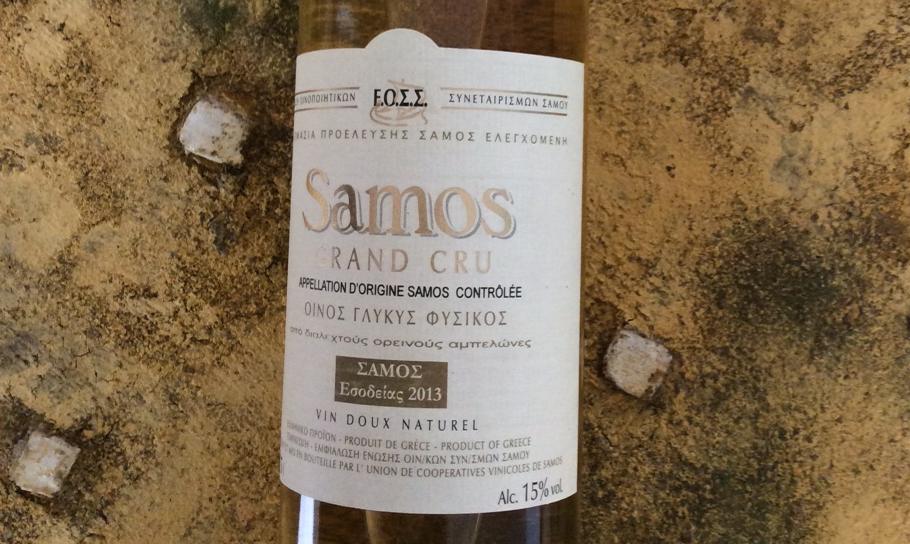 There are 3000 years of viticulture on Samos. Even today, Muscat Blanc á Petits Grains thrives under the burning southern sun for the sweet Samos wine. The grapes grow mostly on small terraces on the northern slopes of the Ambelos Mountains, up to 800 meters altitude.
There are 3000 years of viticulture on Samos. Even today, Muscat Blanc á Petits Grains thrives under the burning southern sun for the sweet Samos wine. The grapes grow mostly on small terraces on the northern slopes of the Ambelos Mountains, up to 800 meters altitude.
The EOSS (Union of Cooperatives Vinicoles de Samos), the Association of Winegrowers’ Cooperatives on Samos, formed in 1934 from 26 local cooperatives, is not only responsible for the vinification and quality of sweet Samos wines, but is also responsible for marketing and public relations. Nearly 80% of the approximately 70,000 hl Samos per year are exported.
There are four different varieties of samos wine, three of which are alcohol-fortified wines, and the fourth, samos nectar is made from over-ripe, dried grapes from the best locations. A minimum of three years aging in oak barrels is required. The wine has aromas of dried raisins and possibly other dried fruits, which can be complemented by roasted or nutty notes.
While the Samos Nectar reaches its alcohol level through fermentation, the alcohol (15% Vol.) of the other three wines is due to a fortification. The most common alcohol-fortificated samos wine is Vin Doux. In its case the fortification is usually done with the unfermented or briefly fermented must, corresponding a Mistela. Since the maturation is short, Vin Doux has the strongest muscatel flavors, but also those of very ripe apricots and melons.
A Mistela also is Anthemis, however, unlike the Vin Doux at least it is aged for three years or even longer in wooden barrelsand whose grapes have grown in the best locations. Anthemis wines show in addition to the flavors of muscatel and dried fruit mostly also notes of chocolate or cocoa.
While the must of these two wines must each have a sugar content of 221 g / l, a minimum sugar content of 252 g / l is required for the production of a Vin doux naturel Grand Cru. The grapes must be overripe and from the best locations. Fermentation of the must is interrupted by alcohol-fortification and the wine must be aged in barrels for at least three years.
The Samos Grand Cru, we have tasted, was brought to us by Alex, a native-born Greek from ‘Thessaloniki’, and his wife when they stayed with us with their children.
Samos 2013 Vin Doux Naturel Grand Cru, EOSS (Tasted wines)
Bright golden yellow. At first slightly woody cask notes, tender citrus, overripe melon. On the palate, wood and oak notes, green walnut, orange and apricot, only discreetly sweet, good, slightly warm finish with herbaceous notes, decent to good wine.
Learn more about greek sweet wines and muscat wines.